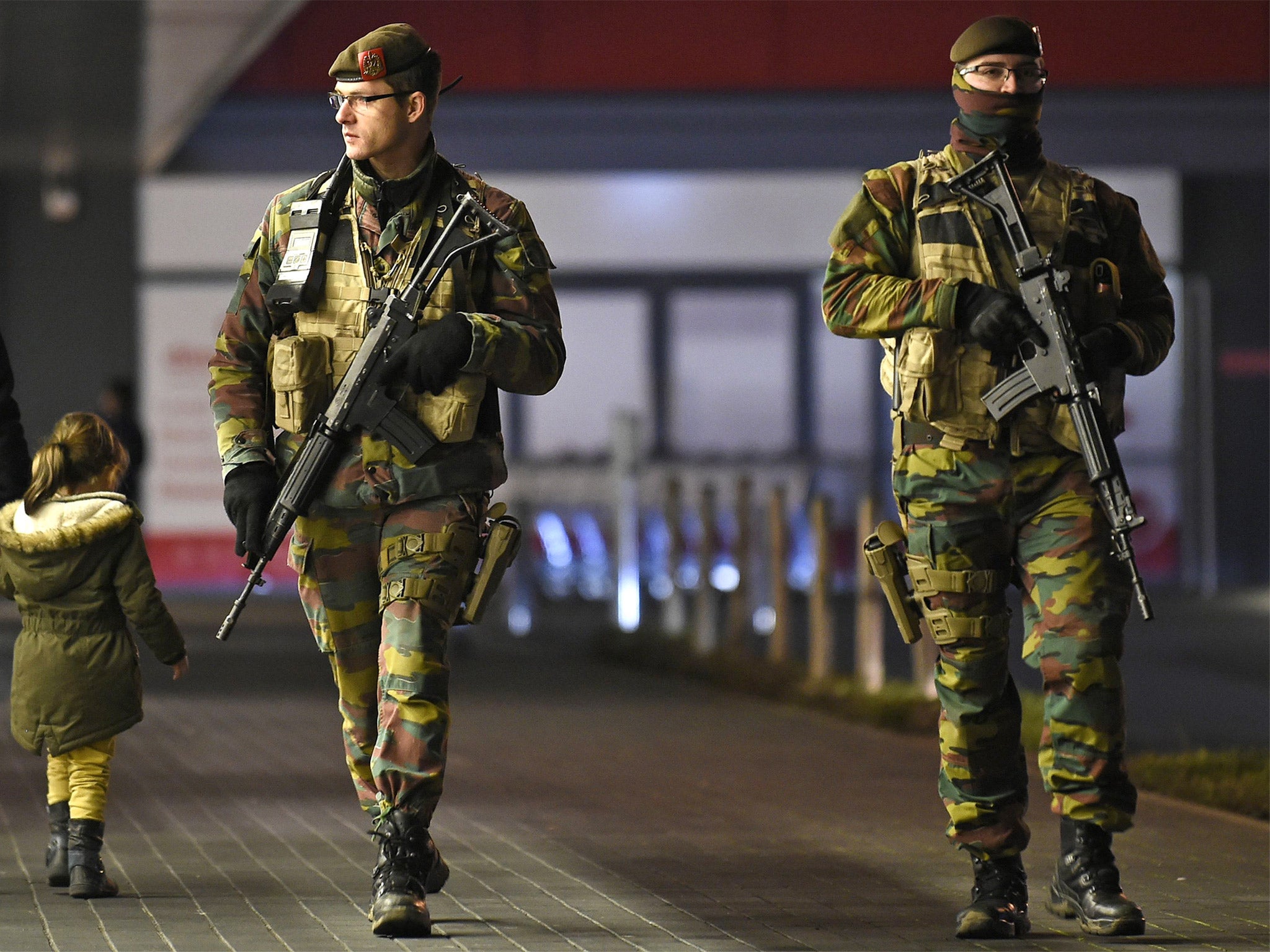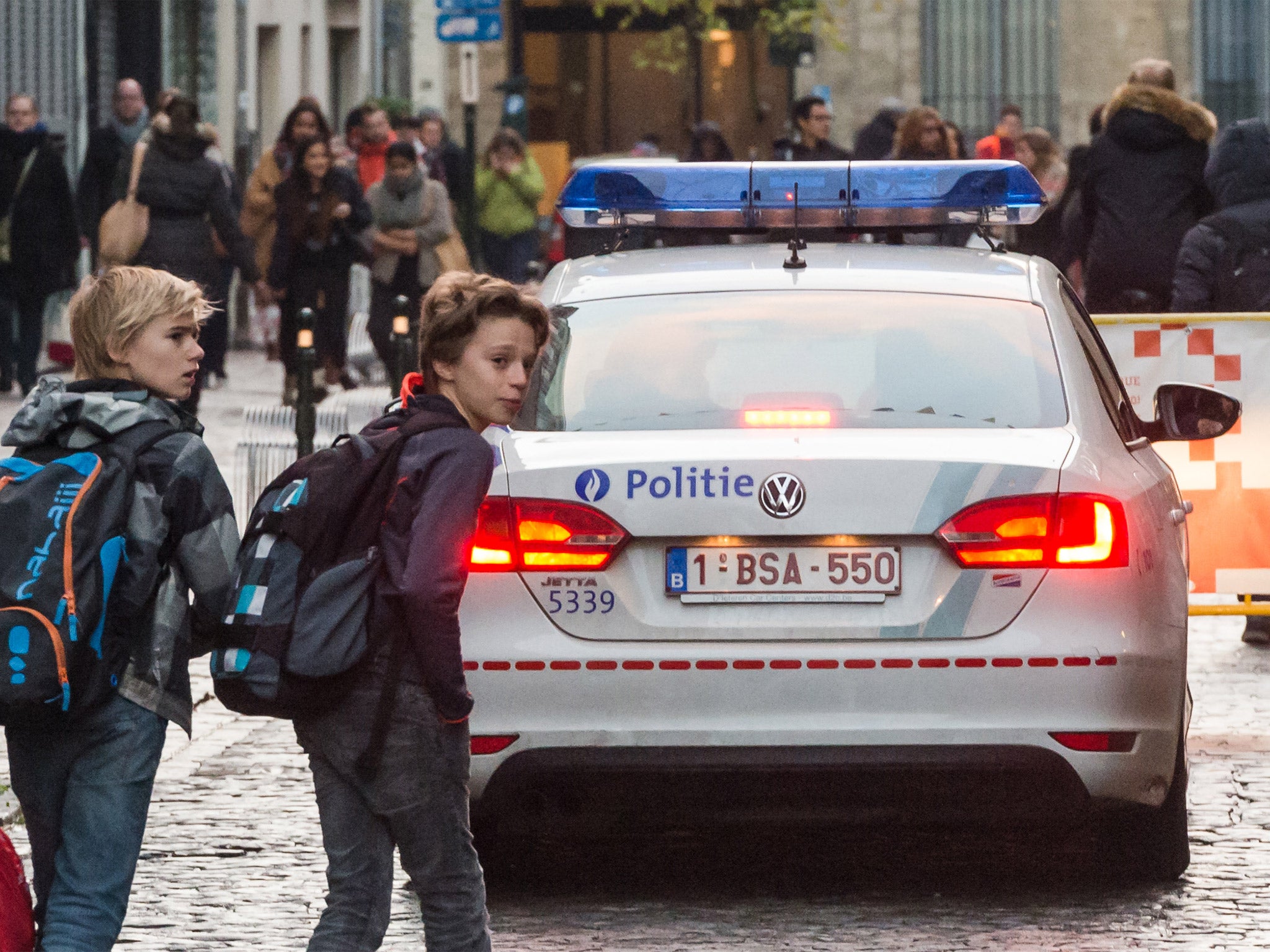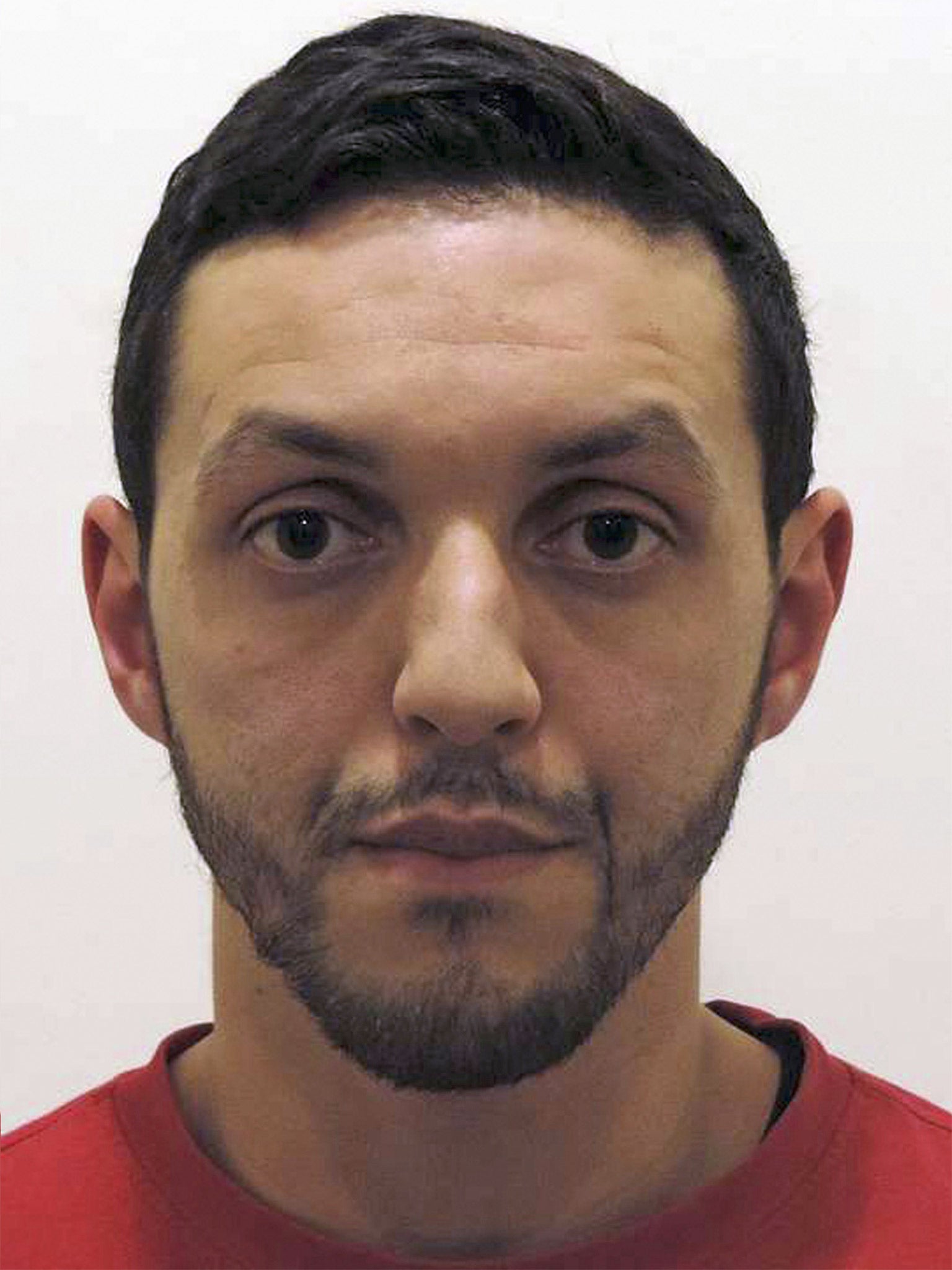Belgian police searching for 10 suspects thought to be plotting Paris-style attack with heavy weapons and 'suicide bombs'
Intelligence indicates commercial and shopping centres were targets rather than schools or metros

Your support helps us to tell the story
From reproductive rights to climate change to Big Tech, The Independent is on the ground when the story is developing. Whether it's investigating the financials of Elon Musk's pro-Trump PAC or producing our latest documentary, 'The A Word', which shines a light on the American women fighting for reproductive rights, we know how important it is to parse out the facts from the messaging.
At such a critical moment in US history, we need reporters on the ground. Your donation allows us to keep sending journalists to speak to both sides of the story.
The Independent is trusted by Americans across the entire political spectrum. And unlike many other quality news outlets, we choose not to lock Americans out of our reporting and analysis with paywalls. We believe quality journalism should be available to everyone, paid for by those who can afford it.
Your support makes all the difference.Belgium is searching for about 10 individuals thought to be plotting a Paris-style attack with heavy weapons and “suicide bombs”, it has emerged, as hospitals in Brussels were put on alert over potential infiltrators.
The Belgian Foreign Minister, Didier Reynders, revealed to US broadcaster ABC that the 10 being sought could be armed with Kalashnikov rifles or “maybe more than that”. He said intelligence indicated commercial and shopping centres were targets rather than schools or metros, which reopened in Brussels on 25 November.
He was speaking as emergency team managers were told to watch their equipment, vehicles and IDs carefully when responding to emergencies. “You are requested to pay careful attention to avoid the theft of clothing or material,” said the memo from Belgian Interior Minister Jan Jambon and Health Minister Maggie De Block. Brussels has been under its highest security alert level since 21 November, when the Prime Minister, Charles Michel, warned of a “serious and imminent threat”.

Children in Brussels went back to school on 25 November and the city’s metro reopened as the capital attempted to return to its normal routine. But despite the heavily armed police and around 1,200 soldiers on the streets, residents remained jittery.
“It’s scarier than it was during the Nazi occupation,” said Marie, 89, walking her dog. “In the Second World War, we knew what was happening. We don’t know now.”
One mother, Anne, taking her 18-month-old son to a local creche, said she was anxious leaving him during the day. “I’m worried, yes. It’s scary. But we can’t hide all our lives,” she said.
The city’s 160 schools reopened with 300 extra police stationed around them. A further 200 soldiers guarded the public transport system. Universities, cinemas, museums and concert halls also reopened.
Lazez Abraimi, 39, arrested in Brussels on 19 November on suspicion of helping fugitive Paris attack suspect Salah Abdeslam, will remain in custody for another month, a Brussels court said. Police discovered guns and a blood trail in his car, but his lawyer said he had explained both findings to investigators. “The blood does not belong to Salah, but to someone else,” said his lawyer, Sokol Vljahen.

Another suspect, Mohamed Abrini, was known by intelligence services to have joined rebels in Syria before returning to Belgium, it emerged. Belgium issued an international arrest warrant for Abrini on 24 November, describing him as “dangerous and probably armed”.
In France, the government has begun counting the economic cost of the Paris attacks: the finance ministry estimates the country will lose €2bn – or 0.1 per cent of GDP – from the collapse of tourism and a steep fall in shopping and visits to restaurants, bars and museums. Hotels and other tourist-dependent businesses are estimated to lose around 30 per cent.
27 November has been declared a day of mourning and homage for the 130 people murdered in Paris. President François Hollande will lead a secular ceremony of remembrance at the Invalides.
Brussels football team Anderlecht will play their home match against Oud-Heverlee Leuven on 29 November behind closed doors, as will Bruges side, Club Brugge in tonight’s Europa League game against Napoli.
Meanwhile, Andy Murray, in Ghent for Great Britain’s Davis Cup final against Belgium this weekend, insisted that his team felt “safe and secure” despite the threat level. “You have to try and live life as normal,” said Murray.
Join our commenting forum
Join thought-provoking conversations, follow other Independent readers and see their replies
Comments